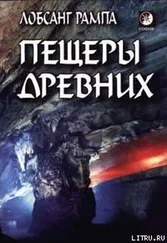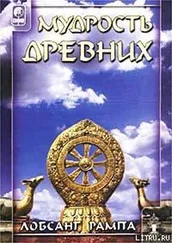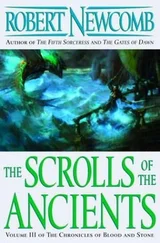“If we find out more,” Yama said, “then we can end the plot before it begins.”
“Grah! And if you leave here before the end of the contract, you’ll be assassinated. You will stay here, for your own safety.”
“I can take care of myself.”
Tamora said sharply, “How is your wound? Does it trouble you?”
“A headache now and then,” Yama admitted.
He had the beginning of a headache now. He felt as if his skull was too small to contain his thoughts, as if his brain was a bladder pumped up by a growing anger. Red and black sparks crawled at the edge of his vision. He had to stifle an impulse to draw his knife and do some harm.
He said, “I will not make the same mistake again. And I will do as I will.”
Pandaras said, “Perhaps my master should leave now. Go and find the records of his bloodline, for that’s why he is really here.”
Tamora suddenly whirled, smashing her stave against the plinth with such force that it snapped in two. She glared at the splintered stub in her hand, then threw it hard and fast down the length of the Basilica. “Grah! Go then! Both of you! Go, and accept what falls out. Death, most likely. Even if you dodge the hirelings of the Department of Indigenous Affairs, you know nothing about the Palace, and it is a dangerous place.”
“I will come back,” Yama said. “I promised that I would help you and I was taught to keep my promises. Besides, I hope to learn something here. Is not one of the attributes of this Department the ability to find lost things?”
Chapter Two
The Eye of the Preservers
It was the custom of the Department of Vaticination that everyone, from senior pythoness to lowliest collector of nightsoil, took their evening meal together in the refectory hall of the House of the Twelve Front Rooms. The pythonesses and their domestic staff—the secretary, the bursar, the chamberlain, the librarian, the sacristan, and a decad of holders of ancient offices which had dwindled to purely ceremonial functions or nothing more than empty titles—raised up on a platform at one end of the refectory; the thralls ranged around the other three sides. The refectory was not a convivial place. Yama supposed that there had once been tapestries muffling the bare stone walls—the hooks were still in place—and perhaps rugs on the flagstone floor, but now the gloomy high-ceilinged hall was undecorated, and lit only by the fireflies which danced attendance above the heads of every man and woman. The thralls ate in silence; only the chink and scrape of their knives underlay the high, clear voice of the praise-sayer, who, at a lectern raised in one corner of the refectory, recited suras from the Puranas. Alone amongst several hundred sullen servants, only Pandaras dared glance now and then at the people on the platform.
Although the refectory was bleak, Yama found the formal style of the meals, a decad of courses presented at intervals by liveried thralls, comfortingly familiar. It reminded him of suppers at the long banqueting table in the Great Hall of the peel-house. He sprawled in a nest of silk cushions (their delicate embroidery tattered, stained and musty) at a low square table he shared with Syle, the secretary of the Department of Vaticination, and Syle’s pregnant wife, Rega. The rest of the domestic staff were grouped around other tables, and all were turned toward the couches on which the two pythonesses reclined.
The Department of Vaticination was one of the oldest in the Palace of the Memory of the People, and although it had fallen on hard times, it kept up its traditions. The food was poor, mostly rice and glutinous vegetable sauces eaten with wedges of unleavened bread (the thralls had it even worse, with only lentils and edible plastic), but it was served on fine, translucent porcelain, and accompanied by thin, bitter wine in fragile cups of blown glass veined with gold and silver.
Luria, the senior pythoness, overflowed her couch, looking, as Tamora liked to say, like a grampus stranded on a mudbank. Crowned by a tower of red and gold fireflies, she ate with surprising delicacy but ferocious appetite; usually, she had finished her portion and rung the bell to signal that the dishes should be taken away before the others on the platform were halfway done. Swags of flesh hung from her jowls and from her upper arms, and her eyes were half-hidden by the puffy ramparts of her cheeks.
They were large, her eyes, and a lustrous brown, with long, delicate lashes. Her black hair was greased and tied in numerous plaits with colored silk ribbons, and she wore layers of colored gauze that floated and stirred on the faintest breeze. Whenever she chose to walk, she had to be supported by two thralls, but usually she was carried about on a chair.
She had been pythoness for more than a century. She was the imperturbable center of such power that remained in the faded glory of the Department of Vaticination, like a bloated spider brooding in a tattered web in a locked, airless room. Yama knew that she did not miss a single nuance of the whispered conversations around her.
The junior pythoness, Daphoene, was Luria’s starveling shadow. Only a single wan firefly flickered above her flat, pale face, as if she were no better than the least of the kitchen thralls. She wore a long white shift that, girdled with a belt of gold wires, covered her body from neck to ankles. Her head was shaven, and lumpy scars wormed across her scalp. She was blind. Her eyes, white as stones, were turned toward the ceiling while her fine-boned hands moved amongst the bowls and cups on the tray a servant held before her, questing independently like small restless animals. She never spoke, and did not appear to hear any of the conversations around her.
Yama suspected that Daphoene was inhabited by more than one person. Lately, he had begun to sense that everyone had folded within themselves a small irreducible kernel of self, the soul grown by the invisibly small machines which infected all of the changed bloodlines. But Daphoene was a vessel for an uncountable number of kernels, a constant ferment of flickering fragments.
The formal evening meals were a trial to Tamora, and she guyed her unease by playing up the part of an uncouth cateran. That evening, after the argument in the Basilica, she had chosen to sit alone at a table at the far end of the platform, and was more restless than ever. But the more she played the barbarian, the more she endeared herself to Syle, who would incline his head toward Yama and comment in an admiring, mock-scandalized whisper on the way Tamora tossed and caught her knife over and over, or yawned widely, or noisily spat a bit of gristle onto the floor, or drank from the fingerbowl, or, as now, scratched herself with a cat’s lazy self-indulgence.
“Quite wonderfully untamed,” Syle murmured to Yama. “Isn’t she so thrillingly physical?”
“She comes from a people not much given to formalities,” Yama whispered back.
“Fortunately, we didn’t hire her for her manners,” Syle’s wife, Rega, said. Rega was older than Syle, with a pointed wit and a sharp gaze that measured everyone it fell upon and usually found them wanting. She was tremendously pregnant; as round as an egg, as her husband fondly put it, in a shift of purple satin that stretched like a drumhead over her distended belly. She had twisted her feathery hair into a tall cone that sat like a shell on top of her small head.
“She is tired, too,” Yama said. “We have both been working hard.”
The praise-sayer had been reciting from the sura which described how the Preservers had altered the orbits of every star in the Galaxy, as a feoffer might replant a forest as a formal garden. A monument, a game, a work of art—who could say? Who could understand the minds of those who had become gods, so powerful that they had escaped this Universe of things?
Читать дальше












